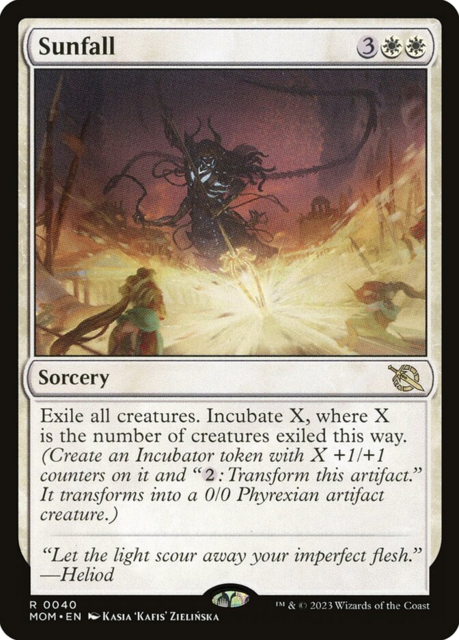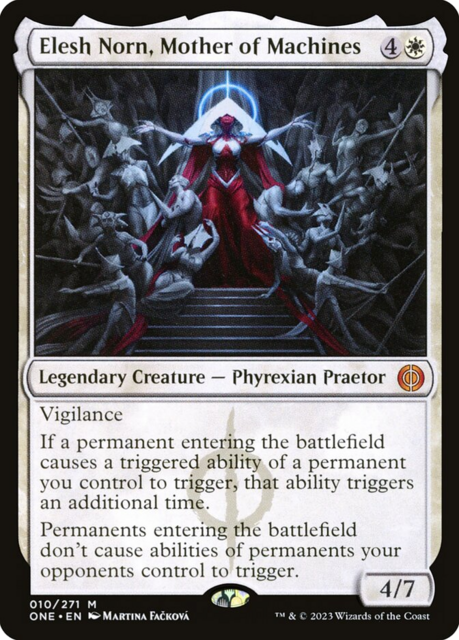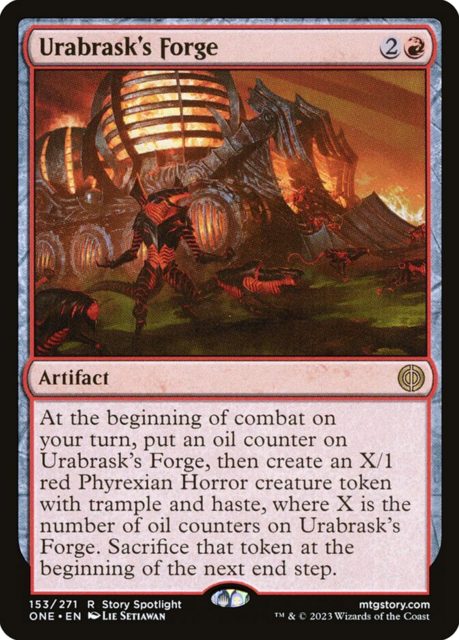
When assessing a piece of media, a lot of audiences like to use a scale-based approach, where they list its achievements on one side and its failures on the other, and they see which weighs more. It's also a technique I've seen hobbyists use to try and determine whether a game review's score is justified by its text. There are circumstances under which this Column A/Column B approach to media can be revealing. Yet, it's far from universally applicable because it ignores that some flaws in art don't just exist alongside the positives but can also ruin those positives.
To get an idea of what it looks like when the disappointing and impressive cohabit, imagine an action-adventure game where the puzzles feel like an afterthought, but the platforming is invigorating. Or we could sketch out a song where the verse puts you to sleep, but the chorus makes you want to get up and dance. You can never entirely uncouple the bad from the good, as the verses lead into choruses, platforming leads out to puzzles, and so on. Every element of art contextualises all others to an extent, but they don't have to cancel each other out. Still, we regularly experience media in which they do. Maybe a game has an innovative crafting system, but the resource gathering in it is so broken, you rarely get to glue materials together into anything practical. Or there could be a film where actors' facial expressions are naked and humanising, but we're rarely hit with their full effect because the camera keeps a distance from its subjects, treating them as strangers.
This second class of defects is more damaging than the first because the flaws are not just undesirable; they sap what is desirable about the piece of media. It's this vampiric class of problems that skitters throughout Magic: The Gathering like mites. The base templates of Magic's cards don't assume too much about how people might use them. Therefore, designers and players can paint what feel like infinite strategic options over that base coat. Magic, in its core rules and mechanics, sets the stage for inventive solutions to stalemates rather than just asking you to brute force your way to victory. So, think about how immense MTG's faults would have to be to nullify those shining accomplishments. Got it in your head? Okay. Magic gets so much worse than that.
____
When someone tells me a system is "imbalanced", I immediately start imagining that some numbers in its files might be too high or low compared to others. However, in games, imbalances can also involve the raw capabilities of entities in play. In true Magic fashion, when the game confers excessive might to one creature card, it's not usually because the power and toughness (attack and health) of those cards are overinflated, given the mana cost to play them. It's almost always because they introduce a rule that makes life hell for their opponent. Here are just a few of the ridiculous spells that you can hurl from your fingers in Magic: The Gathering:

There's Phyrexian Obliterator, a 5/5 creature (5 power and 5 toughness) that places a cruel curse on whoever attacks it. For every point of damage it takes, the opponent has to sacrifice 1 card on the field. It has 5 toughness, so you might have to kill off five of your creatures to get rid of this one. But it gets direr because the effect counts damage in excess of the Obliterator's HP. If you hit it with 7 damage, you have to destroy seven permanents. There are plenty of ways to increase Obliterator's toughness too. I've seen players have to sacrifice most of their lands, the cards that allow them to play other cards, attempting to scrub this mould off the field.
If you're wondering what could be more mean-spirited than Phyrexian Obliterator, there's Phyrexian Vindicator. The Vindicator is a 5/5 creature that can fly over opposing entities, cannot be damaged, and allows its controller to reassign any damage inflicted to it to another target, player or monster. So, if you try to levy 6 damage against it, Vindicator's wrangler can subtract 6 of your HP. Or there's the queen of the Phyrexians: Elesh Norn, Mother of Machines.
As I discussed last time, your success in a lot of Magic matches is contingent on you triggering beneficial combos of powers between the cards on the field. For example, you could have Devilish Valet, a 1/3 humanoid which doubles its power until the end of the turn when another creature enters the field. Then, you might throw down Redcap Gutter-Dweller, a goblin which spawns two rats when it enters. Three new creatures on the field would mean the Valet doubles its power three times for a total of 8 attack. Elesh Norn, Mother of Machines, has all on-field effects trigger twice for its owner and never for their opponents. In this example, if Elesh Norn was on the opposing side of the field from Valet and Dweller, Valet would still have 1 power. If that devil was on the same side of the ring as the Mother of Machines, it would have 1024. Keep in mind that, in a standard match, a player starts with 20 HP.
Or how about Unnatural Growth, which makes it so that during combat, the power and toughness of its controller's creatures double. There are also cards that get "protection", preventing them from being targeted by the attacks, blocks, or spells of a certain colour of card. So, if your opponent has a blue deck, and you have a creature that is protected from blue, there's nothing they can do to defend themselves against it. Thrun, Breaker of Silence is protected from all non-green cards, can't be countered, and is invincible as long as it's your turn.
If none of these options floats your boat, you could settle for the spells that destroy all creatures on the field, e.g. Depopulate or Path of Peril. Mutual destruction might sound fair, but a player is likely going to invoke these spells when their opponent has more formidable creatures on the table than them, so one player loses more than the other in the trade. It's also the caster of the spell that has control over when it's used, and they are the only one who knows it's coming, meaning that they can prepare for the purge.

Sunfall is a mid-game sorcery that destroys all beings on the field and then lets you pay only 2 mana to unleash a creature that has the same power and toughness as the number of monsters vanquished. That new abomination you summoned can also attack immediately, whereas most creatures have to wait until their controller's next turn to lunge. So, if you use Sunfall to kill 14 creatures, you get a 14/14 monster that can strike without pause. A card that does its job too well can also severely exaggerate the powers of others. In isolation, Quirion Beastcaller, which gets one more power and toughness when another creature enters the field, might just about be reasonable. But pair it with Ozolith, the Shattered Spire, so it gets +2/+2 with each new summon, and it's a runaway freight train.
At the time of writing, Wizards of the Coast has printed about 27,300 unique Magic cards. As of publication, about 2,700 of these cards are legal in the game's Standard format, and roughly 18,300 are permitted in the Modern mode. Tens of flubs or even a hundred might sound insignificant in that ocean of cards, but overpowered tools in a game devalue all tools in the same category. It's not just that Wizards have mangled one card in a thousand. It's that all 27,000 are thrown off balance because of it. It's the erosion of thousands of perfectly fine gameplay elements that is Magic's most egregious crime.
I praised MTG for creating situations in which players have to carefully consider their next move based on the current state of play. I said that many cards can find a use because, rather than just being good or bad, their efficacy rises or falls based on whether they are appropriate for the context in which you could currently play them. But the overpowered cards counteract this transformative character of the game and reduce the need for their controllers to analyse the playfield carefully before they act. This is because what makes the imbalanced cards too dangerous is that they perform in a wider range of contexts than other cards.
If my opponent played an aid that was letting them gain a lot of life, like Titania, Voice of Gaea, I might respond with my Giant Cindermaw and stop them from increasing their HP. If they summoned a flying creature, I could send out a beast with reach, which can block it. In these examples, I am selecting a solution specific to the problem the enemy has created for me, and the enemy is creating problems for me by looking for the areas my previous solutions don't account for. Many times, I must also be selective in what I target. Network Disruptor can prevent an enemy creature from blocking my attacks this turn, but I can only select one victim to use it on. I can cast Prizefight to will one of my folk attack an individual enemy, but only one, and then Prizefight falls into the graveyard.
But look at what happens when I throw those overpowered cards in. If I see my opponent keeps playing medics that heal them upon entering the battlefield, like Mossbeard Ancient, and I want to scupper their healing, I could just play Elesh Norn, Mother of Machines, which stops all their on-field effects. There are some gladiators like Protocol Knight that stun enemy combatants when they enter the field. If my opponent was playing them and I just wanted to halt their effects, I could also play Elesh Norn, Mother of Machines. There are permanents that force an opponent to discard a card when they arrive at the party, like Hopeless Nightmare or Nezumi Informant. I could also belay their unique powers through Elesh Norn, Mother of Machines. Here, I haven't had to make a deliberate, and therefore, strategic decision that pertains closely to the current set of obstacles in front of me. I can lazily rely on Elesh Norn to nullify all trigger effects.

You can see the same generality compromising Phyrexian Vindicator's design: its handler doesn't have to work out how to block one particular type of creature, like those flying or those with more attack than defence. The Vindicator is invulnerable to all sources of damage. Or we could compare Prizefight and Network Disruptor to Depopulate and Path of Peril. There may be criticisms we could level against the former two cards, but at least they give the player an interesting and often difficult choice by having to work out the best creature to disable or destroy out of all the enemy creatures. Because Depopulate and Path of Peril completely sweep the board, the user doesn't have to be so surgical.
These wild cards feel unfair to play against both because the game has given your opponent a sharper sword than you and because the person you're playing against gets more reward for thinking less. Sitting across from these colossi, you can come up with elaborate plans that involve exiling your cards from play and returning them to avoid damage and re-trigger effects. You can sacrifice creatures to simultaneously proc enchantment powers and effects on the sacrificed creature. But the opponent can respond with a far more braindead and obvious strategy, like just murdering your card with an instant spell and win out. Sometimes, playing Magic, it feels like your adversary is always on the verge of revealing a slate of text which says, "Your deck catches fire". These imbalances are all the more embittering in ranked matches, paid events (even if the pay is in-app currency), or tournaments, where you have some significant resource investment.
Additionally, overpowered entities disrupt the joy of deck building. Opening a new Magic booster feels a bit like Christmas because you can imagine all the different kinds of decks you could construct with the cards you've collected. But if you're playing at a high enough level, a lot of those cards lose their lustre because you know they'll be outplayed by the fan favourites. The player wielding the overpowered cards doesn't get away unscathed, either. These wide context cards turn down the difficulty of the average match and let fighters approach the table with lackadaisical strategies that have them applying themselves less. Therefore, there's less of that intrinsic enjoyment we get from problem-solving.
And all players experience reduced variety in matches. Magic may have thousands of cards, but you keep seeing the same ones coming around the carousel because those are the ideals for their certain cultivar of deck. Urabrask's Forge for a red aggro deck, Make Disappear for a counter deck, and so on. And the wider the applicable uses of a card, the more kinds of decks you see it in. Spells that remove a single creature from play, like Borrowed Time or Go For the Throat, are ubiquitous in black and white decks, almost regardless of the overall strategy of those decks, because being able to erase a single problematic creature from existence is incredibly advantageous, no matter what other mechanics you want to incorporate into your repertoire.
You can reduce your exposure to these ubiquitous cards by not playing them, but it's a catch-22. You're potentially facing humiliating and frequent defeats unless you adopt them, which is why everyone has them in their holster. Introducing cards, especially rare cards, that stand head and shoulders above others also has the unsavoury effect of letting players pay their way to power. Every time you see someone flash their Mythic Rares like Luxior, Giada's Gift or Jaya, Fiery Negotiator, if you don't have those cards, you know they've bought entry to a club you're not in, and they're getting a leg up because of it.

In video games, paid items that allow competitors greater odds of success provoke outrage. Gamers also tend to bristle at lootboxes that contain non-cosmetic items. Put them together, and you'd have a powder keg. But trading card games have never been subject to the same expectations. Probably because, since video games first emerged from the primordial soup, we have been used to getting every tool we'd want in the same box, or these days, maybe with an expansion pack added on. But Magic: The Gathering was the first modern trading card game, so the precedent that you'd be able to buy the power to suplex opponents was there from TCGs' birth.
Wizards do ban some imbalanced cards from some formats. Yet, every card I referenced above is legal in Standard, the most restrictive, commonly-played gametype. I know that when you are writing a whole library of spells for players to amass, you're not going to sniff out every mischievous scheme players could concoct. Particularly because there are so many potential dynamics you could create between the tools. Therefore, some problematic cards are going to slip through the filter. But in Magic, it doesn't take much examination to tell how cards like Phyrexian Obliterator or Elesh Norn, Mother of Machines, can bias the game in one player's favour. They are popular in part because their advantages are not nuanced; they are plain for everyone to see.
All the cards I've discussed have been around for months or years, the data and community opinion on them is in, and Wizards still haven't removed them. They've allowed them rule of the roost, even while banning cards that didn't have half the teeth of these. It's hard to conclude anything but that Wizards can be ruthlessly efficient at finding and clipping out the imbalances in their game, but they're choosing not to be. Thanks for reading.
Log in to comment